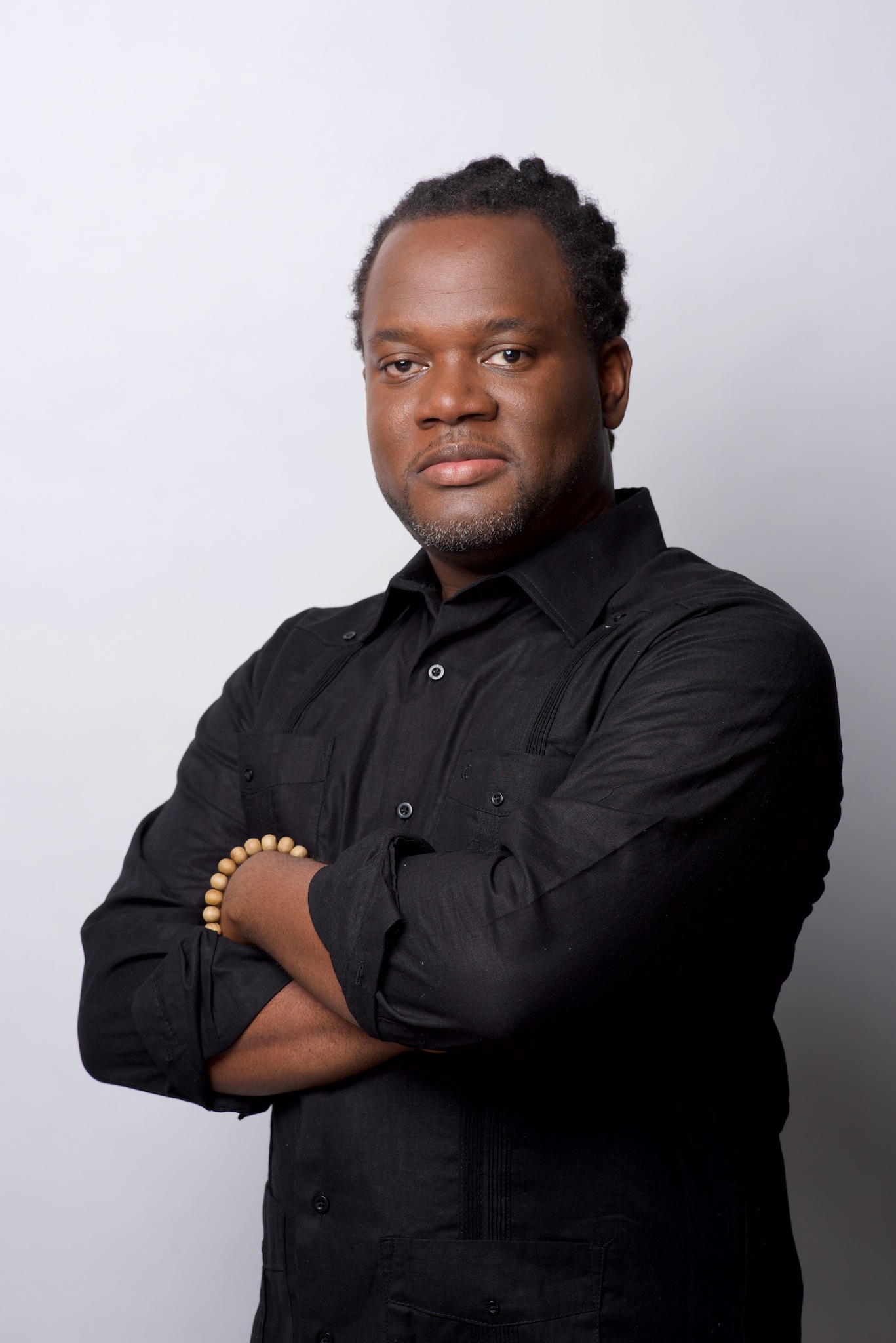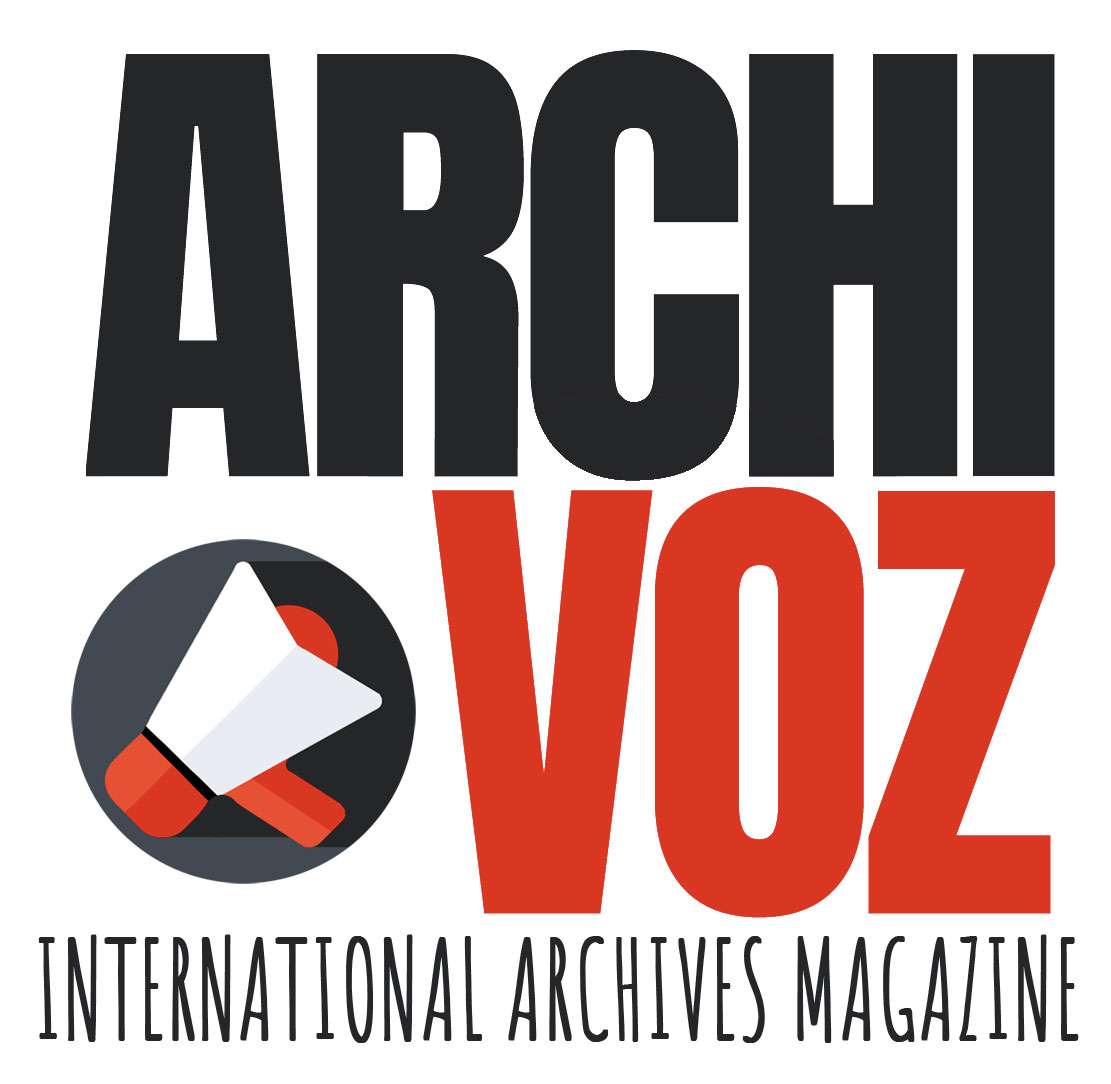Today, I’m speaking with Dr. Stanley H. Griffin, Senior Lecturer in Archival and Information Studies at the University of the West Indies, about the colonial legacy in archival collection and management, the difference between silence and noise in the archive, and the need to balance written word with lived experience when building archival collections.
(Archivoz) Tell us a little about yourself. What drew you initially to the archives, and why did you decide to stay?
(Stanley Griffin) I was born into a multi-routed family living at the time in Barbados. I deliberately say multi-routed, with parents from St. Kitts and Nevis and Antigua and Barbuda whose families were further rooted in other Caribbean territories, such as Curaçao, as well as Europe and the United States. In addition to being born into this multicultural context, we moved around the region every three years as part of my parents’ careers. This spawned an early interest in culture, history, and reading, as moving to a new country meant learning new cultural norms and historical facts, if only to get good grades in school and make new friends.
My original attraction to archives came by way of studying history at the Cave Hill Campus of The University of the West Indies in Barbados. My first encounter with an archive, specifically the Barbados Department of Archives, was during a final year history course called “Techniques of Historical Investigation.” This course basically taught us the mechanics of historical research, from visiting the archives and mulling through their huge deed books, to visiting churches and cemeteries, reading plaques and grave stones, to walking tours of Bridgetown (the capital city of Barbados) and rural plantations with their great houses. As you can imagine, this course placed historical content within the context of the lived experiences of those who created the resource materials we use in the writing of history today. Additionally, we completed a small archaeology project on a house lot in an older area of Bridgetown, which also required some archival research.
I have never forgotten the holy hush of the Reading Room and my amazement at the large land deed registers we had to read through in order to put our findings in context. Our experienced historian-lecturer was integral to this process, showing us how records were inextricably connected to other forms of evidence and historiography. I loved seeing how archival work underpinned historical research and writing. I remember saying to myself, “I would actually love working in an Archives,” because I really enjoyed doing historical research. I remember going home and writing an application letter to work in the Barbados Department of Archives, although I never bothered to post it.
Immediately after my final year of undergraduate study, I started postgraduate studies in Cultural Studies while working as a student assistant at the circulation desk in the university’s main library. It so happened that the university appointed its first campus archivist that year, who was also finishing up her master’s degree in Heritage Studies. She happened to be taking an elective course with me in Cultural Studies and asked if I was interested in volunteering at the newly opened Archives. I volunteered and started work on the personal papers of the Caribbean’s first female Prime Minister, the late Dame Eugenia Charles of Dominica, through which I became acquainted with another formidable character in Caribbean political history. This experience reinforced my interest in archival and historical research. A few months later, the position of Archives Assistant became available. I was appointed and the rest is history.
As my academic career developed into a PhD in Cultural Studies, my professional career in archives continued to develop as well. I accepted the newly created Assistant Archivist position at the UWI Archives in Jamaica, where I managed the University Archives and assisted the University Archivist in providing archival support to the executive leadership of the University. While waiting to defend my doctoral dissertation, I started an MSc in Archival Studies. I came to Archives because I love history and research and was intrigued by the ways in which records connect past people and societies to the present day. I stayed because it allowed me to satisfy both my cultural studies research interests and my enjoyment of archival research and work. I never envisioned an academic career as an archival educator since my interests inclined more toward archival practice and writing about cultural dynamics. Thankfully, both spheres met in 2018 when I accepted a fulltime lecturer role in Archives and Records Management, a teaching and coordinating position I held as an adjunct while managing the University Archives.
(Archivoz) In an essay published in 2021 (“Noises in the Archives: Acknowledging the Present Yet Silenced Presence in Caribbean Archival Memory”), you argue for a tension between silence and noise in archival collections, and the ways in which knowledge exists (and is defined) within both—perhaps not in the manner in which these relationships are conventionally conceived. Can you unpack these ideas for us? How do they affect the manner in which you personally approach archival research?
(S.G) There is a tangible tension between what is held in Caribbean archives and what is remembered in Caribbean communities. Archives are a colonial imposition: record creation and maintenance were activities of those who wrote (colonial administrators, plantation attorneys and overseers) as well as those who kept diaries and logs of their experiences (imagined or otherwise) of the region. In these various records, the authors wrote about the assets of the plantation or colony, such as the enslaved Africans or indentured labourers (from India, China, etc.) from which the vast majority of the population has decended. These records offer details about the documented, often in very disparaging terms.
Non-white human beings are devalued in the records as property and their perspectives are not recorded. As one author suggests, in order to find the voice of the enslaved or indentured, one must search/read between the lines, picking sense out of the nonsense that was written. In a very real sense, the power dynamics between masters and enslaved or indentured are outlined and evidenced in the records. All the prejudices that shaped Caribbean society are exhibited in these archival materials. One cannot expect people like Mrs. Flannigan, in her two-volume 1844 diary detailing her visits to Antigua, to document favorably the perspectives of the enslaved. Her subjectivity is laced with all the prevailing social injustices of the day, including her condescension toward the local white upper classes—whose tastes, in her view, lacked the refinement only residence in Britain could instill. These prejudices were carried over into materials of the post-emancipation and even post-independence eras. We must also bear in mind that the colonial legacies of archival records are not limited to the content of the records, but also the process of creating and appraising the archival value of materials. There is a widely held view that archival materials derive from certain offices or roles so, as one might expect, Caribbean people generally view archival records with some measure of suspicion and disapproval.
The challenge, however, is that we are schooled in Eurocentric traditions of literacy and archivy. We privilege writings as authenticated expressions and materials of memory. There is an appreciation of the written, the published, as tangible and authentic expressions of knowledge. These written texts serve as the fodder for published, secondary sources. However, there are knowledge-forms that are not written but are living and expressed, and can be found in our oral traditions. These sources of information often have been considered “noise”: mere cultural expressions that, while integral parts of the lives of the marginalized, seemingly have no greater informational content, meaning, or value. The forces of colonialism made sure this would be the case, as value, meaning, and social relevance were reserved for Eurocentric cultural expressions.
Thankfully, Caribbean societies have matured to the point that such cultural expressions, such as storytelling, songs, rhythms, instrumentation, dress, and cuisine are recognized as valid and valuable elements of cultural heritage. In and through these forms, the enslaved and indentured practiced, maintained, preserved, documented, and communicated information crucial to their identities and sociocultural survival. The challenge now is to fully understand the ways in which these cultural practices serve as information artifacts worthy of documentation, dissemination, and preservation. Just as with written correspondence or diary entries, through calypso, for example, we discover personalities, occurrences, and opinions of particular times, places, and spaces.
Sadly, we do not document these expressions as seriously as paper-based materials, for various multilayered reasons. It is not uncommon for a performer, for example, to discard song sheets at the end of the carnival season, or not even keep tapes of performances. Caribbean people so enjoy and rely on their ingenuity and creativity that the created works are easily replaced with another cycle of creativity. We take our creativity for granted. However, our memory and information institutions are slowly increasing their capacity to acquire, preserve, and make available non-paper-based cultural materials and collections. Thankfully, there is a growing appreciation of intellectual property rights and their derivative benefits. Additionally, with access to the Internet and web-based technologies, recordings of performances are now being preserved and made accessible via online sharing and social media platforms. The community is self-documenting in ways institutions are not generally able to support at the moment.
In my research, I deliberately try to engage both “knowledge” and “noise” sources. I have found that there is always a reckoning, or balancing out, in the narrative when a story or song is interrogated to the same degree as an archival find. One must be aware that not all the details will have been written down, and that the archival record is a reflection of a particular perspective—albeit that of the powerful. Including cultural sources of information in one’s research is vital to a broader and deeper appreciation of the matter.
Header image courtesy of Dr. Stanley H. Griffin.
Interviewee:

Dr. Stanley H. Griffin
Senior Lecturer in Archival and Information Studies and Deputy Dean of Undergraduate Matters, The University of the West Indies
Stanley H. Griffin is Deputy Dean, Undergraduate Matters (Humanities) and Senior Lecturer in Archival and Information Studies in the Faculty of Humanities and Education, Department of Library and Information Studies (DLIS) at The University of the West Indies, Mona Jamaica Campus. He holds a BA (Hons.) in History, a PhD in Cultural Studies (with High Commendation), from the Cave Hill Barbados Campus of The University of the West Indies, and an MSc in Archives and Records Management (Int’l), University of Dundee, Scotland. His research interests include multiculturalism in Antigua and the Eastern Caribbean, the cultural dynamics of intra-Caribbean migrations, archives in the constructs of Caribbean culture, and community archives in the Caribbean. His most recent publications include Decolonizing the Caribbean Record: An Archives Reader (Litwin 2018), and Archiving Caribbean Identity: Records, Community, and Memory (Routledge, 2022), co-edited works with Jeannette Bastian and John Aarons, along with several book chapters and journal articles on Caribbean archival, historical and cultural issues. Stanley is active on the executive board of several academic, heritage, and archival professional societies, including the Caribbean’s archival association, CARBICA, and is a member of the editorial board of The International Journal of Information, Diversity, & Inclusion.
Interviewer:

Vance Woods
Director of English Content, Archivoz Magazine
I have a Master’s degree in church-state studies from Baylor University in Texas, with a focus on medieval Celtic history in the British Isles. I have worked in multiple contexts, including the theater, church ministry, and primary/secondary education. I started as a special collections cataloger at Baylor in 2009, moving to Oregon State University in 2017 after an interim period in Argentina. I have extensive experience with original cataloging in many different formats, both physical and electronic, including rare and unique materials. I am an expert in languages, having worked with Baylor’s Keston Collection, comprised of materials from and about the former Soviet Union in a wide variety of languages, including several Cyrillic-based languages. I am fascinated by linguistics in the bibliographic field; it’s a passion I continue to develop at Oregon State. I have published in both scholarly and popular contexts, including a photographic history of Butler, Missouri, where my ancestors came from. I am very interested in international cooperation in terms of library science and I see great potential for development in this field.




This is a great piece and I look forward to part 2. I really enjoy Archivoz content. Thank you!